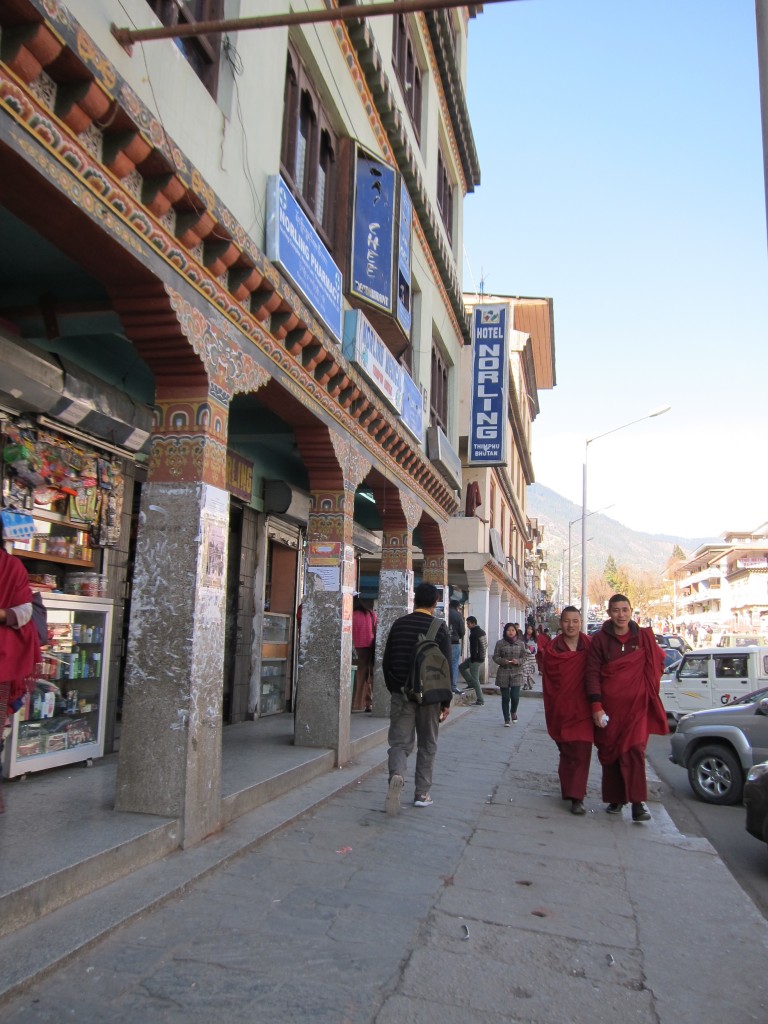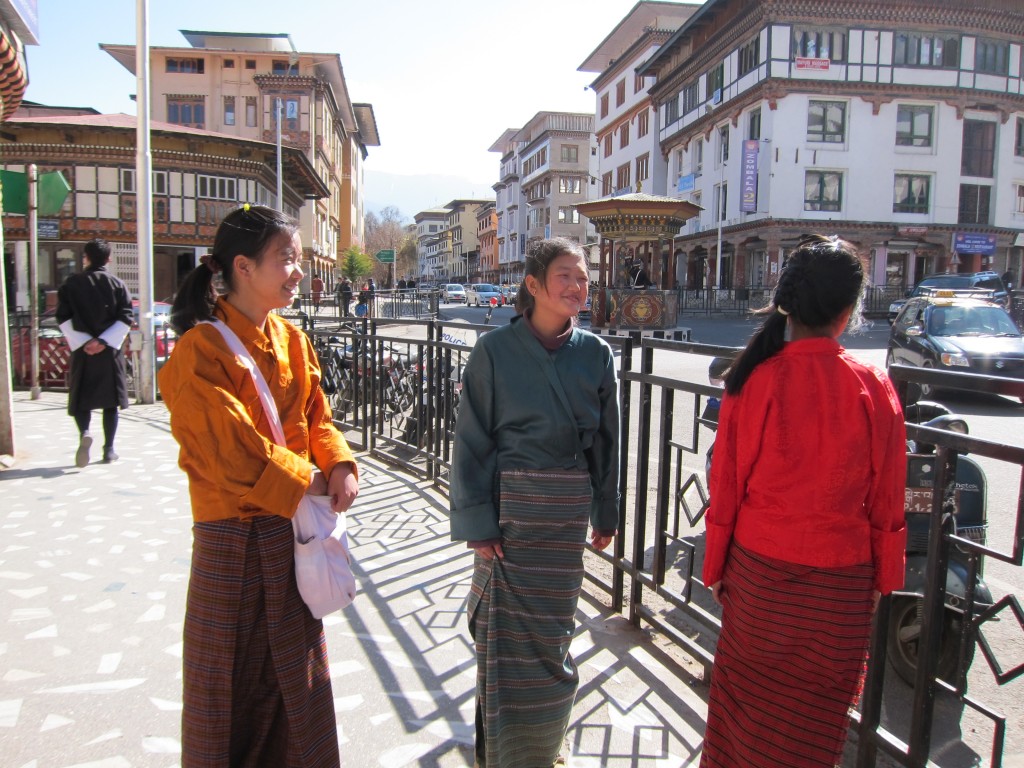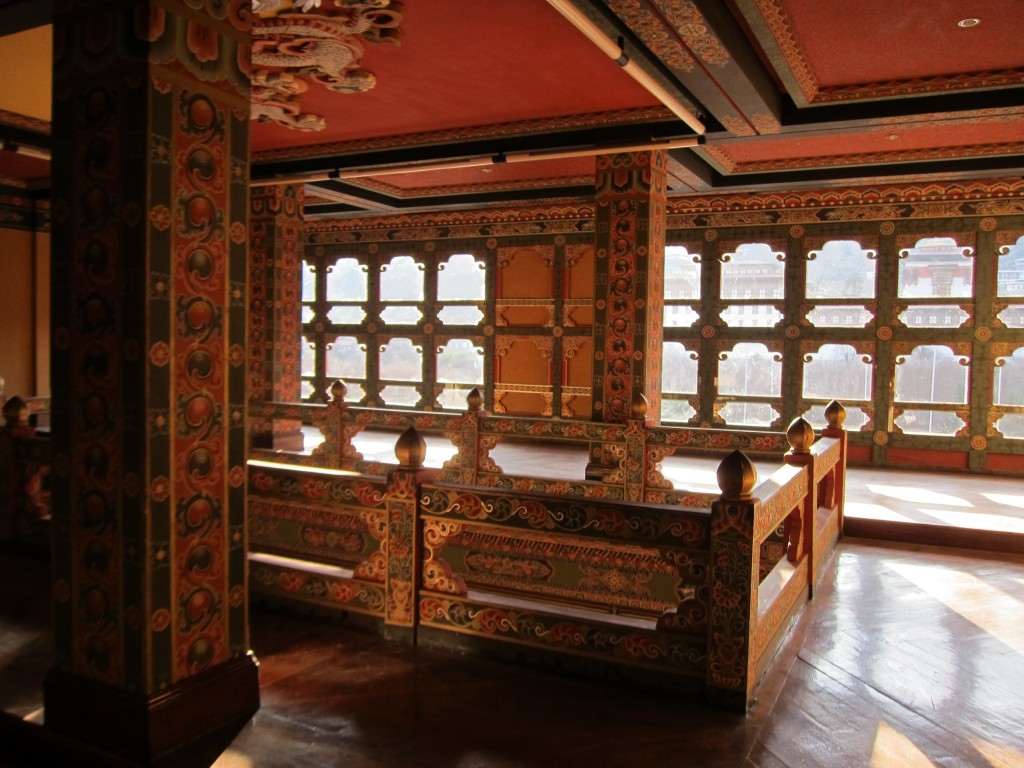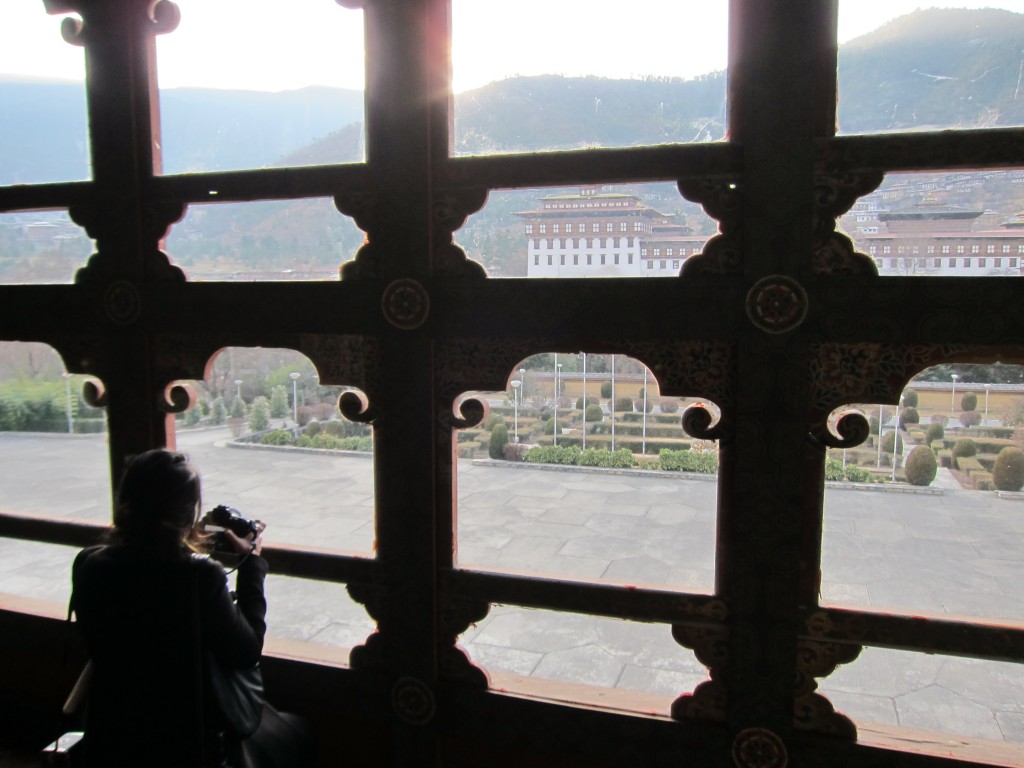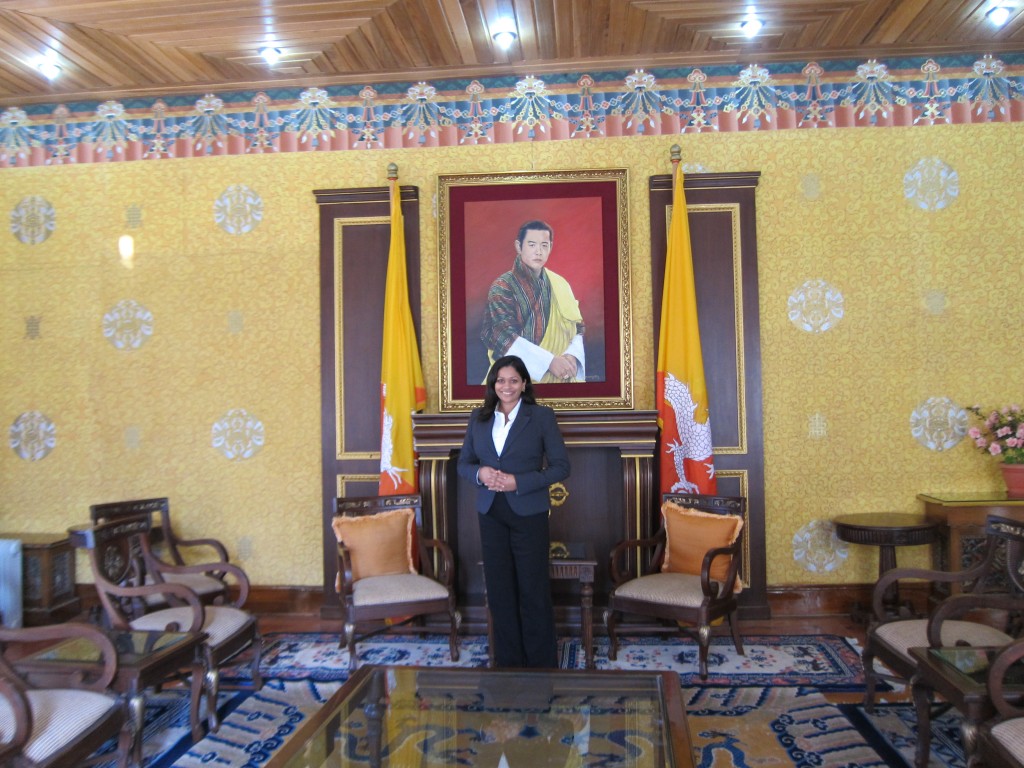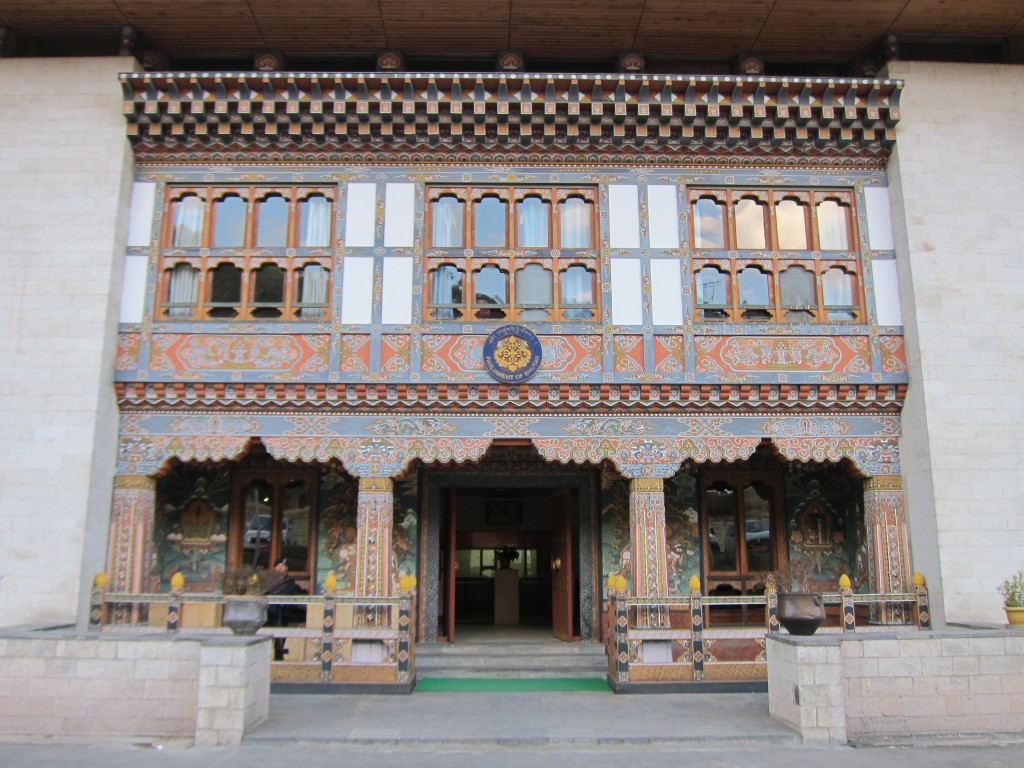The happiness question: Bhutan’s new Prime Minister
Bhutan got a new prime minister last year, in only its second democratic election. I first visited the tiny country tucked inside the Himalayas in 2011 for a literature festival and have loosely followed developments there ever since. When the results of last September’s election were announced, I wanted to find out more: just why did Bhutanese throw out their first elected government after a single term? It hadn’t been a bad government by any obvious measure: indeed, Bhutan has gone from being virtually isolated a few decades ago to having the highest GDP in South Asia. Were they simply flexing some democratic muscle? Or were there external factors involved? Certainly some people I spoke to felt it was the latter – that Bhutan was being caught up in the brewing powerplay between India and China. Of course, this was mere speculation from afar, and sources said it could well be simply be a series of unfortunate coincidences.
I made it back earlier this year, and after a short flight from Delhi that passed over the Himalayas – giving me a bird’s eye view of Mount Everest – I landed in Paro, a large town with the only flat valley large enough to accommodate a landing strip for international flights.
Last time I visited, Paro was a deserted main road lined with beautifully carved and painted wooden facades. Little had changed, although I noted a few new buildings.
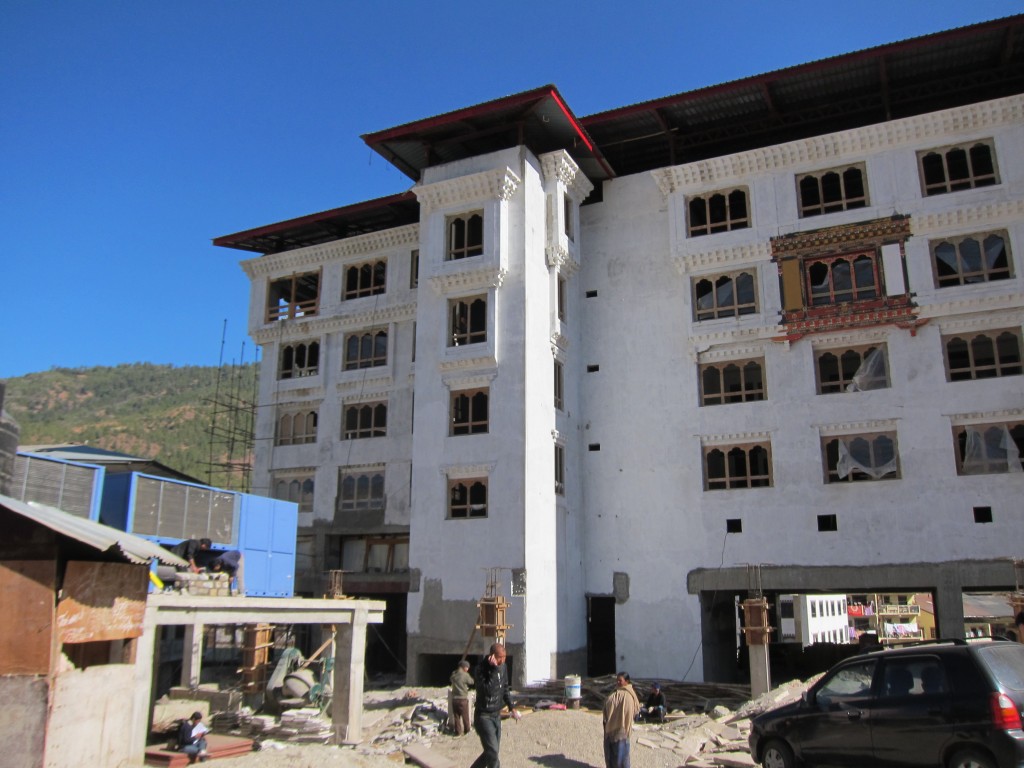
The Oberoi is building a hotel in central Thimpu. One window is painted to show how the exterior will ultimately look.
Meanwhile, the changes in Thimpu, the capital, were more noticeable: new buildings, more construction sites, more people thronging the city centre, new bars and restaurants.
I mean, it’s no Bangkok, but there are signs everywhere that this is a place on the rise and one that’s increasingly connected with the region, whether it’s a shop full of K-pop DVDs, signs advertising education agents for Australia, or a band playing Foo Fighters covers. But at the same time, there’s a strong sense of adhering to tradition: most women I encountered were wearing the traditional outfit, the kira, even if it was paired with stilettos and worn in a bar while drinking beer.
But in the end, it wasn’t a thorough examination of modern Bhutanese mores I was there for; rather, I managed to score an opportunity to interview the new prime minister, Tshering Tobgay. The interview, and accompanying story, appeared this month in Monocle.
The Bhutanese parliament house, like all other buildings, has a traditional exterior, while its interiors vary from functional to jaw-droppingly beautiful – like the hallway with views over the Thimpu dzong and surrounding mountain peaks, where afternoon light streaming in through the windows painted the woodwork golden. The prime minister’s own office is spread across the parliament building and a nearby government block as there isn’t enough space for his staff of almost 30.
I had just a scant half-hour with the leader, but he was gracious in answering all my questions thoughtfully, even those he didn’t seem to like very much – like when I asked him about his stance on Gross National Happiness (he’d indicated in previous interviews that he wasn’t a champion of the policy). At the same time, he was strangely reticent, even expressing reluctance to have his photograph taken or allow me to hold my microphone in his field of vision.
We’d hoped to interview him in the room used for official state visits, photo opportunities and suchlike: the wallpaper is handpainted and glass cabinets lining the walls contain ceremonial masks and other cultural objects. The light and backdrop were perfect; unfortunately the prime minister elected to use his own office. It was fine, but didn’t have the same sense of gravitas.
Perhaps one of my favourite aspects of Bhutan is its relative innocence: the prime minister’s two burly bodyguards, stationed at the bottom of the flight of stairs leading to his office, were really quite chuffed to be asked to pose, and the photo made the spread.
Outside, we’d been warned we shouldn’t take photos of the exterior of the parliament house – but we did, and no one stopped us.
It was a short, yet intense and action-packed trip, and not a huge amount of time for pulse-taking; however I did ask almost everyone I met about the election result. Bhutanese are gentle and don’t like to criticise, so the most excoriating criticism came from a 30-something bar owner, who said quietly, “Well, you can see this for yourself. If people had thought the previous guys had been doing a good job, they would have kept them in.”
Click here to read the full story.
